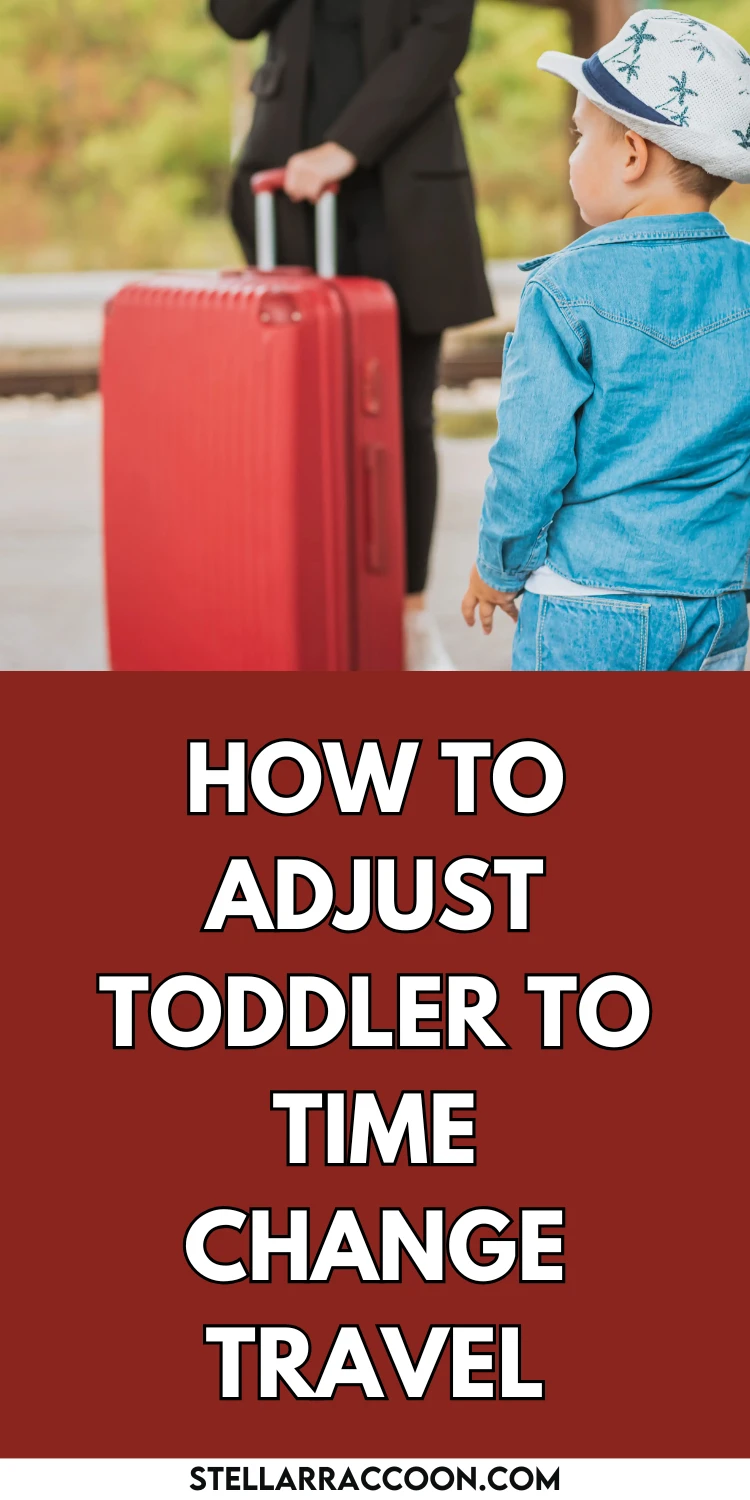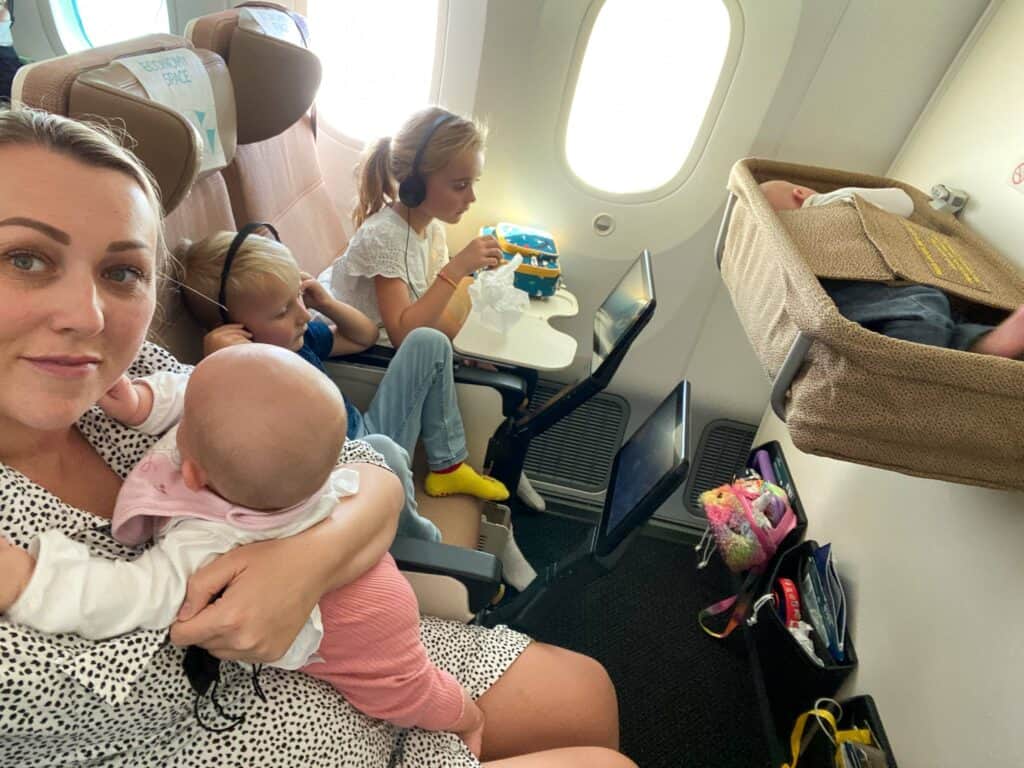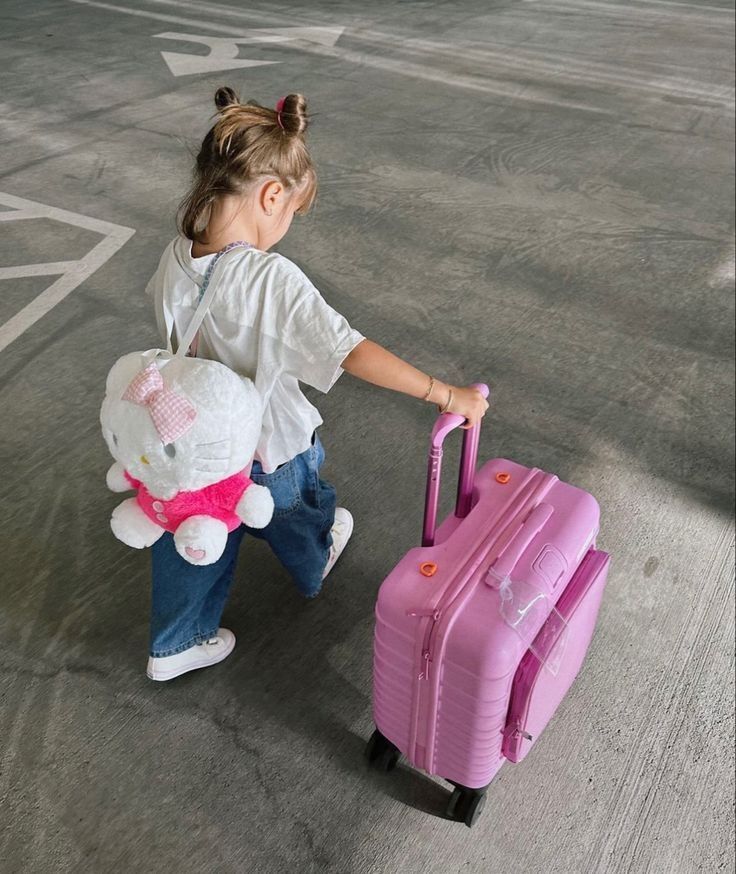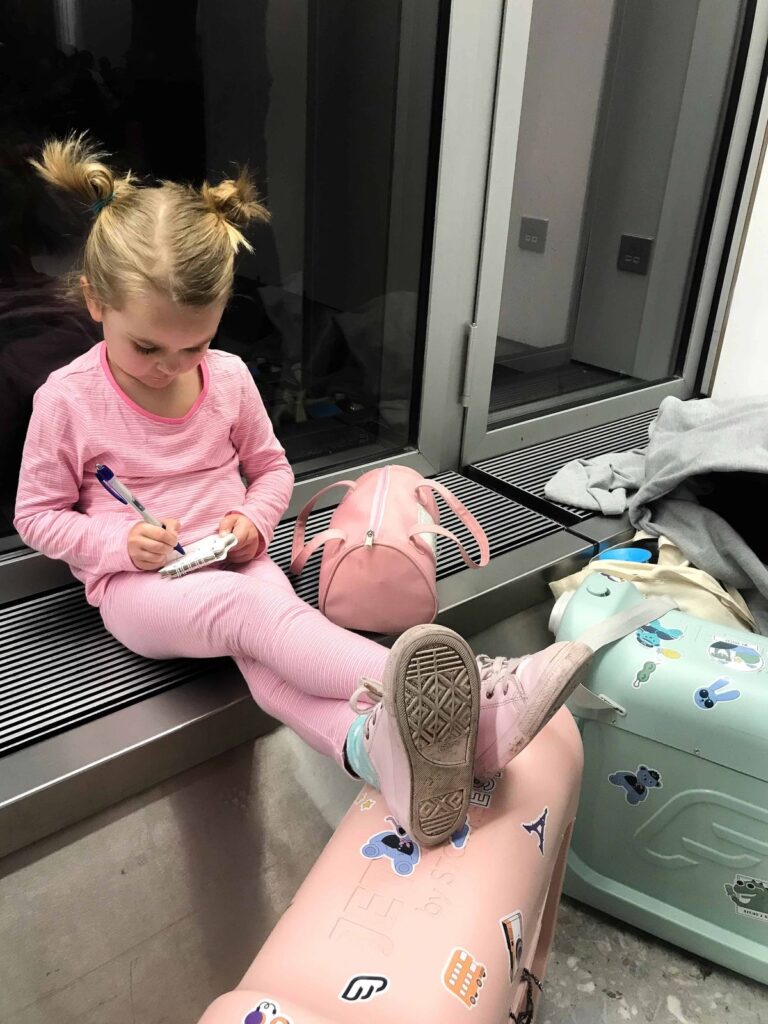Toddler time change travel turns dream vacations into exhausting nightmares for unprepared families. Your little one wakes at 3 AM, bouncing with energy, and you desperately need sleep.
The problem runs deeper than tired parents realize. Twenty-five percent of toddlers already struggle with nighttime settling difficulties Dissonance Add jet lag to the mix, and you face weeks of disrupted sleep, cranky behavior, and family stress that ruins your entire trip.
The solution lies in understanding your toddler’s developing circadian rhythm and applying science-backed strategies. Smart families see adjustment within 2-3 days Surviving Jet Lag in Babies & Toddlers • Making Family Travel Manageable using proven preparation techniques, strategic light exposure, and flexible scheduling that works with biology.
How To Adjust Toddler To Time Change Travel

Understanding Why Toddlers Struggle More With Time Zone Changes

Unlike adults, toddlers can’t rely on caffeine or willpower for jet lag recovery. Their developing circadian rhythms, established between 6 weeks and 6 months, depend entirely on external cues like light and routine. While toddlers can adjust 30-60 minutes daily versus babies’ 15-30 minutes, their sleep-wake cycle remains vulnerable to disruption, requiring one day per hour of time zone adjustment.
Pre-Travel Preparation: Setting Your Toddler Up for Success

Successful toddler travel preparation starts one week before departure. Book flights landing near bedtime for easier time change preparation. Gradually shift bedtime 15-30 minutes every few days for 3+ hour differences.
Pack essential travel sleep gear: familiar blankets, sleep sacks, portable white noise machines, and blackout materials. For 4+ hour differences, use the “halfway hack” – adjust only 2 hours initially for effective jet lag prevention.
The Critical First 48 Hours: Your Day-by-Day Action Plan

The arrival day protocol determines toddler sleep adjustment success. Get immediate natural light exposure upon morning arrival for circadian rhythm reset. Adjust meal times to local schedule and cap naps at 2 hours maximum. Set 8am local alarm Day 2 regardless of night sleep quality. If toddlers crash at 5pm, expect 5am wake-ups. Keep first day jet lag expectations realistic.
Light Therapy and Environmental Controls for Toddlers

Morning light exposure helps toddlers wake earlier and sleep earlier through natural circadian rhythm reset. Create pitch-black sleep environments using travel blackout shades or taped trash bags. Avoid evening light exposure strategically and limit screen time before bed. Cool room temperatures and consistent white noise optimize the travel sleep environment for effective toddler light therapy.
Age-Specific Strategies: 12-18 Months vs 2-4 Years

Understanding toddler age sleep differences is crucial for successful time zone adjustment. Younger toddlers (12-18 months) have more flexible circadian rhythms and typically need 12-16 hours of sleep including two naps. These children often adapt more easily to schedule changes during 18 month old travel scenarios.
The 18-24 month transition phase presents unique challenges as toddlers can handle 30-60 minute daily shifts but may be transitioning from dual naps to single afternoon naps. One real example showed a 16-month-old successfully adjusting with three shorter naps instead of one long nap while maintaining nighttime sleep quality.
Older toddlers (2-4 years) requiring 11-14 hours of sleep face different 2 year old jet lag challenges. They have more established routines, stronger sleep preferences, and may resist changes more actively.
Managing nap transitions requires patience. Some toddlers may temporarily need additional rest periods while adjusting, and this flexibility often leads to better overall sleep adjustment success.
East vs. West Travel: Why Direction Matters

Not all time zone changes are created equal, and understanding the difference can transform your travel experience with your toddler.
1. Eastward Travel Hits Harder
When you travel east, you’re essentially asking your toddler’s body to “lose” time and go to bed earlier than their internal clock wants. This creates significant eastward travel jet lag because it fights against your child’s natural circadian rhythm. Research shows our biological clocks naturally want to run 25-26 hours daily Preventing Jet Lag in Toddlers and Kids – Happiest Baby, making it much easier to stay up late than go to bed early.
2. The Recovery Time Reality
Parents consistently report that eastward recovery takes nearly double the time of westward travel Surviving Jet Lag in Babies & Toddlers • Making Family Travel Manageable. Flying from California to New York typically requires 4-6 days for full adjustment, while the return westward time zone change often resolves in just 2-3 days.
3. Direction-Specific Strategies
For eastward travel, focus on earlier wake times starting one week before departure, and expect more bedtime resistance initially. Common challenges include difficulty falling asleep, staying asleep, and middle-of-the-night wakings Surviving Jet Lag in Babies & Toddlers • Making Family Travel Manageable.
For westward travel, the main challenge is early morning wake-ups. Keep your toddler up until as close to local bedtime as possible, even if they seem tired at 4 PM Surviving Jet Lag in Babies & Toddlers •
Common Mistakes That Make Jet Lag Worse

Common jet lag mistakes include maintaining home schedules during long trips, over-scheduling arrival days, abandoning familiar bedtime routines, staying indoors during crucial morning light hours, and misusing melatonin. Keep home schedules only for 1-2 time zones or trips Travel Tips for Changing Time Zones with Baby under 5 days. These toddler travel errors extend adjustment time unnecessarily.
When to Seek Professional Help

Most toddlers adjust within 3-5 days, but persistent toddler sleep problems beyond one week may indicate underlying issues. Consult a pediatric sleep specialist if your child experiences severe behavioral changes, refuses sleep entirely, or had pre-existing sleep difficulties before travel. Professional support helps differentiate normal adjustment challenges from concerning sleep disorders.
FAQs
1: How long does it take for toddlers to adjust to a new time zone?
Most toddlers adjust within 2-3 days TravelingwiththelittlesBaby Sleep Made Simple, with the bulk of difficulties occurring in the first two nights.
Q: Should I adjust my toddler’s schedule for a short trip?
For trips crossing only 1-2 time zones or lasting under 5 days, keep your home schedule rather than forcing adjustment Travel Tips for Changing Time Zones with Baby.
3. What should I do if my toddler wakes up in the middle of the night during jet lag recovery?
Keep lights minimal and use quiet play to help them return to sleep when ready Traveling Between Time Zones with a Baby | Taking Cara Babies.


